-
What Is Pre-Kindergarten?
Has your child recently turned 3 or 4? If so, then you may be wondering when she should begin school. If your child is still too young for kindergarten, then you may benefit from enrolling her in pre-kindergarten . Continue reading to learn about what to expect when your child joins pre-k in Pembroke Pines.
Pre-kindergarten programs consist of daily activities and classes that are designed for children around the age of 4. Focused on providing fun, fostering creativity, and preparing children for future academic success, pre-k activities can include games, projects, and experiences that encourage children to enjoy learning and that teach early math, reading, language, and social skills.
Because pre-kindergarten introduces your child to a traditional academic environment, this type of program can help ensure her success in later grades. At the same time, pre-k provides day care for children and can help acclimate your child to being away from her family for extended periods. For these reasons, enrolling her in a pre-kindergarten program can be highly beneficial for your child.
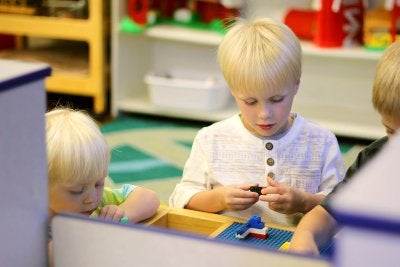
-
The Importance of After School Activities
Participating in a variety of activities offers kids several benefits. If you’re thinking about enrolling your child in an after school program near Pembroke Pines, then continue reading to learn about the importance of these activities for children.
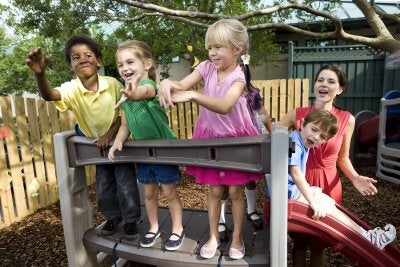
Developing New Interests
As your child continues to grow and develop, you may notice that she is embracing new hobbies and likes. When you enroll your child in after school programs, this gives her a chance to pursue sports and activities that interest her. At the same time, giving your child the opportunity to begin a program of her choice allows her to try something new and develop a diverse set of interests. Whether it’s soccer, drama club, or band, enrolling your child in programs like these can give her a chance to discover a passion that she can continue to pursue in the future if she desires.
Building Self-Esteem
While her academic classes can encourage teamwork, socialization, and confidence, after school programs can often do this to a greater extent and in a more relaxed setting. If your child tends to be shy, then enrolling her in after school activities may provide her with the outlet that she needs to interact more with others and build her self-esteem.
Improving Academic Performance
While you may not associate sports and other programs with your child’s grades, recent studies have identified a correlation between better academic performance and the work and behavior habits that develop because of participation in after school programs.
Strengthening College Applications
If your child is still young, then you may not be thinking as far ahead as college. However, no matter her age, fostering interests and passions now is a great way to help ensure that she continues to participate in activities through high school. No matter the type of after school programs that she ends up pursuing, being able to add these to her college application is an excellent way to improve her chances of acceptance.
-
Helpful Learning Tips for Kindergarten
When you are preparing your child to begin kindergarten, you may find yourself wondering what you can do to help him succeed. Did you recently enroll your child in kindergarten in Pembroke Pines? If so, then watch this video for tips on helping him learn during this time.
One of the best ways to ensure that your child is available to absorb his kindergarten curriculum is to develop a schedule that allows him 10 to 12 hours of sleep per night and to provide him with plenty of nutrition. Also, speaking with your child and having extended conversations with a back and forth exchange is a great way in which to improve his kindergarten readiness.
-
A Quick Look at Our Summer Day Camp
At Tanglewood Academy, our summer day camp is designed to help kids get the most out of their summers while giving parents the opportunity to maintain their own responsibilities without worrying about child care and keeping kids entertained. Like our after-school programs, Tanglewood Academy’s summer camps in Pembroke Pines are built around fun learning activities to keep bodies and minds on the go during the summer months.
Our summer day camp features benefits like low counselor-to-student ratios, educational field trips, and plenty of bonding opportunities for kids to positive friendships that can last for years to come. Both physical and cognitive activities are on the agenda daily, so kids get a chance to work out their bodies and their minds. The skills and relationships kids build at our summer day camp will benefit them both in and out of the classroom when school is back in session. Talk to a camp counselor or other staff member to find out if Tanglewood Academy camp could be right for your child.
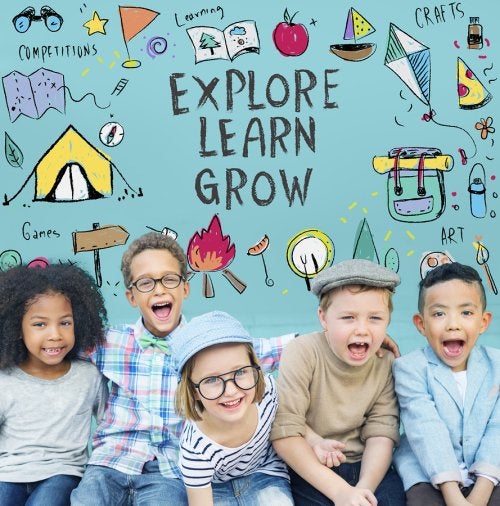
-
Activity Ideas for Parents of Toddlers
Play is an essential part of toddler education, both in school and at home. Your toddler’s daycare will keep him or her occupied with a variety of play activities that also boost learning throughout the day. For activities for toddlers that give them the same learning experiences at home, watch this video.
Play teaches toddlers everything from colors and shape to fine motor skills, so try a variety of activities to keep your little one entertained. Puzzles are great for child development because they help toddlers practice a number of skills. Building forts, finger painting, and playing with balls are also fun and educational ways to spend time with your toddler.
-
Common Learning Activities for Pre-K Students
Pre-kindergarten, or pre-K is an extremely valuable transition year between early education and kindergarten that helps children prepare for the demands of the kindergarten classroom. Pre-K programs are voluntary and help children develop a love of learning that can last them a lifetime. If you are thinking of enrolling your children in pre-kindergarten in Pembroke Pines , here is what you need to know about what happens in the classroom.
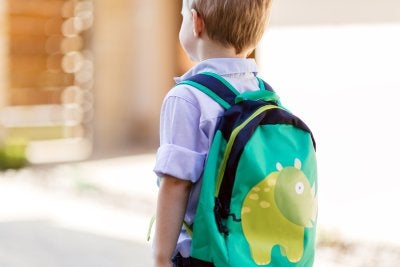
Self-Help Skills
When your child transitions to the big-kid world of kindergarten, he or she will be expected to be self-sufficient in a number of different ways. Although teachers will always be available to help, kids entering kindergarten benefit from knowing how to tie their shoes, zip and unzip their coats, and open the food in their lunchboxes. They should also know how to use their scissors, uncap their clue, and hold their pencils. Learning these self-help skills also gives kids a chance to practice their fine motor skills. These are also great things for parents to practice with their pre-kindergarten aged kids at him.
Letters and Numbers
Letter and numbers are a big part of kindergarten and pre-k. Kids in pre-Kindergarten will get plenty of practice recognizing and writing numbers and letters, which they will continue to learn and apply in kindergarten as they learn to read. Letters and numbers will be practiced in a number of different ways, especially through play.
Physical Play
Physical play has a long list of purposes in pre-k classroom. First, different types of physical play helps kids practice their gross and fine motor skills. Likewise, different play activities help kids learn other lessons, including counting, letters, and other pre-literacy and pre-math skills. Last but not least, physical play helps pre-k students work on their social skills. Through play, they have to learn to cooperate with classmates, respect and follow the rules, and compromise on disputes. Through play, they also get to practice winning and losing, which will help them throughout their school lives.
-
How Young Children Learn Best
Educators know more than ever about early childhood development and how to leverage developmental stages to build the most effective learning programs possible. Now, a preschool curriculum can be built not just around what young children need to learn but how they can learn it as quickly and effectively as possible. Your preschool child’s learning center in Pembroke Pines has structured their classrooms around these principles about young children’s learning styles.
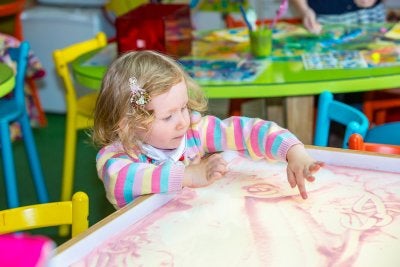
Learning Through Play
Play is one of the most important parts of learning for young children. What may seem like just a fun activity can actually be teaching your child vital math or language skills while giving him or her a chance to practice his or her motor skills. Everything from cooking to playing with blocks to singing songs gives young learners an opportunity to learn or practice new skills. Play also keeps kids moving and prevents the frustration and wandering attention that can occur for young people with sitting for extended periods of time.
Building Lessons on Each Other
Young learners do best when they get to focus on one skill at a time. This means breaking down lessons into small pieces that can easily build on each other. For instance, teaching young children to sing the alphabet doesn’t mean that they know and recognize all of those letters, but learning that song simply as a song is helpful when it is time for children to start learning letters. The song will them have a new, more concrete meaning.
Making Mental Pictures
Preschoolers in particular place the information they learn in context by forming pictures of what they are learning in their heads. For instance, if a young child learns how complete a puzzle, he or she will catalog mental images of their process that can be replayed like a movie later so that he or she can repeat the process. Young learners need these visualizations to help them retain knowledge and apply it later.
-
Understanding Early Childhood Development
When your child attends an early childhood learning center near Pembroke Pines for preschool, kindergarten, or first grade, he will develop valuable life skills and reach key child development milestones faster. Early childhood development encompasses the emotional, social, and physical development of children between the ages of 2 and 8 years old.
Watch this video to learn more about the stages and importance of early child development skills. Jack P. Shonkoff, M.D., a Harvard professor, discusses the basic concepts of early child development, and the science behind it. Early childhood learning centers focus on fostering and encouraging the growth of early child development skills through the use of a comprehensive, well-rounded early childhood curriculum taught by professionals who have been trained and educated in encouraging independence, creativity, and healthy expression in children.
-
A Look at Our First Grade Programs
At Tanglewood Academy , we offer challenging early childhood education programs for kindergartners, preschoolers, and first graders in Pembroke Pines. Our comprehensive first grade program focuses on teaching children first grade math, first grade reading, geography, American history, science, economics, and creative expression. Because our first grade program is so diverse, your child will receive an early childhood education that will better prepare him for his future schooling.
Our early education program for first graders is designed to foster both academic and life experiences. We encourage parent and community involvement in the school and the early childhood education programs. Our early childhood learning center is home to a small population of kindergartners, preschoolers, and first graders of diverse backgrounds, ethnicities, cultures, and religions. Your child will learn how to communicate and work with many different children.
We have a very low student-to-teacher ratio, so each child in our first grade classroom receives individualized attention and instruction. We can accommodate a variety of learning styles, and strive to ensure that your child’s needs are met. We also offer after school programs and summer camps for kids that extend their learning period and encourage the growth of important child development skills.

-
Encouraging Self-Help Skills in Your Pre-K Student
At around preschool age, or age two, your child should begin exhibiting signs of independence. You can help your child become more confident in his independence, self-reliance, and ability to self-soothe and help himself by enrolling him in a pre-kindergarten program near Pembroke Pines. Here are some other ways that you can encourage self-help skills in your pre-k student:

Allow him to dress and groom himself.
The first steps that you can take to encourage your child’s independence are to allow him to dress and groom himself. Let him pick out the clothes that he wants to wear to preschool or pre-kindergarten each day. Encourage him to tie his own shoes and button his shirts and pants. Try to build up to the stage where your preschooler can wash his hands on his own by putting a stepstool in the bathroom or kitchen, and providing an easy-to-use soap dispenser. You can also encourage him to brush his own hair and wash his own face.
Suggest that he clean up his own toys.
Prior to preschool or pre-kindergarten age, your child may have relied on you to clean up after him. By the time he begins preschool at an early childhood learning center, he should know how to clean up his own toys. Throughout his early childhood education, your child will be expected to put away the toys and materials he used during classroom activities. Stay firm at home when your child leaves a mess, and resist the urge to give in and clean it up for him. A huge part of helping your child fully develop independence and self-reliance is encouraging him to learn how to complete basic life skills on his own from a young age.
Prompt dialogue about feelings and needs.
Your child will be better at helping himself and self-soothing if he understands his feelings and knows how to talk about his needs. Don’t shy away from creating a dialogue with your preschool-aged child about how he is feeling, and how he can ease feelings of discomfort, anger, frustration, or sadness.
RECENT POSTS
categories
- Uncategorized
- Early Learning Center
- Pre-K
- Children
- Child Care Center
- Preschooler
- Preschool Blog Category | Tanglewood Academy
- Preschool Lunch
- Tanglewood Academy
- After-School Program
- Toddler School
- Early Childhood Education
- preschool activities
- pre-kindergarten
- childhood education
- pre-kindergarten programs
- Children’s education
- enrichment opportunities
- Kindergarten
- Nurturing Education Environment
- Toddler Care
- Child Separation Anxiety
- Toddlers
- Summer camp
- summer activities
- VPK
- Voluntary Pre-K
- Outdoor Activities
- Smart Strategies
- Tie Shoes
- Snacks
- Physical Activities
- Education
- Enrichment Activities for Kids
- Early Education Activities
- Preschool Curriculum
- Classroom Learning
- APPLE accreditation
- Language Comprehension
